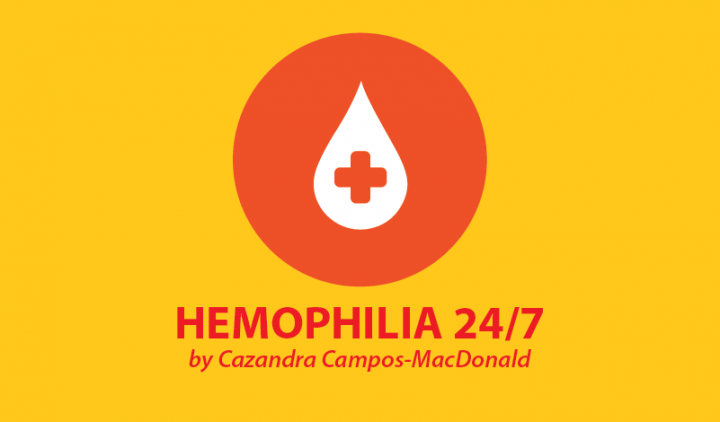Lessons I Learned from My Son’s Diagnosis

Twenty-three years ago, my life changed dramatically. I became a mom. My firstborn, Julian, entered the world screaming at the top of his lungs with a head full of crazy black hair. I imagined him thinking, “Put me back in!” When he was laid on my chest, I was overcome with a love that devoured my soul in an instant. I knew my life had changed, but I was in for another surprise.
Julian was diagnosed with severe hemophilia A after his circumcision site would not stop bleeding. My future as a sleep-deprived new mom had changed. I now wondered whether my child would lead a “normal” life. The early days of Julian’s diagnosis were some of the worst of my life when they should have been the best.
When you are a newly diagnosed parent to a child with a rare disorder such as hemophilia, fear takes over your heart and soul. No longer are you simply worried about changing diapers and getting enough sleep. Now you begin to consider your child’s future. Will they be able to run and play? Will they attend school without issue? Will you know when they are hurting and bleeding? Will you know what to do?
It took some time, but I learned how to identify bleeds. I knew when he was hurting and was able to discern how to help him. I met people in the bleeding disorder community and saw how men and women with hemophilia were thriving. My son would be able to lead a fulfilled life. He would be able to attend school. Once I was educated and began to understand hemophilia, the fear and doubt began to subside.
I am no longer a newly diagnosed parent of a child with hemophilia, but I remember those early days. Feelings of guilt, anger, grief, and fear are normal. It’s OK to feel like the world is unfair. It’s even OK to dwell in sadness over losing the expectation of a “healthy” life for your child. The most important thing is to not stay in your grief. Finding others who live with the same disorder as your child is key to moving forward in accepting the diagnosis.
What can you do in the early days of a diagnosis?
- Find your community. Speaking with people who live with the same disorder can bring great comfort.
- Ask questions. Keep a notepad close by to capture those questions and thoughts throughout your days so that you can go into appointments armed with questions that need answers. There is no such thing as a dumb question.
- Enjoy your child. Your son or daughter is a gift. Don’t let those moments that people living without a medical condition enjoy pass you by. Put your child first and remember that the diagnosis is only a part of their story. It does not define them.
- Don’t take things for granted. Time moves quickly, and before you know it, your baby is off to college before your eyes. Enjoy the time you have with your children in your home. Put family first and tackle the condition together.
Before you know it, the stage of being newly diagnosed will be a faint memory and you will have the tools to help someone else.
***
Note: Hemophilia News Today is strictly a news and information website about the disease. It does not provide medical advice, diagnosis, or treatment. This content is not intended to be a substitute for professional medical advice, diagnosis, or treatment. Always seek the advice of your physician or another qualified health provider with any questions you may have regarding a medical condition. Never disregard professional medical advice or delay in seeking it because of something you have read on this website. The opinions expressed in this column are not those of Hemophilia News Today or its parent company, Bionews Services, and are intended to spark discussion about issues pertaining to hemophilia.







Leave a comment
Fill in the required fields to post. Your email address will not be published.